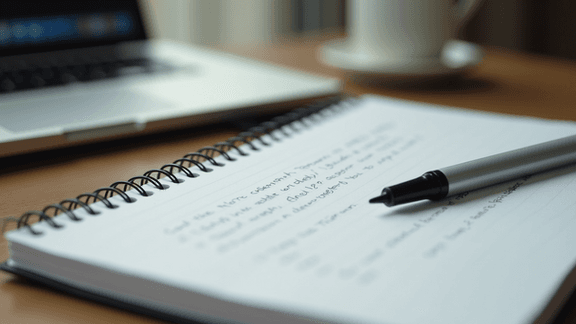Proven Techniques to Tackle Test Anxiety

Test anxiety is a common experience for students of all ages. Many individuals feel overwhelmed, fearful, or even nauseated at the thought of an upcoming exam. While a little stress can be helpful for performance, excessive anxiety can hinder your ability to succeed. Fortunately, there are proven techniques that can help you manage test anxiety effectively. In this post, we will explore various exam strategies that will enable you to approach your tests with confidence.
Understanding Test Anxiety
Test anxiety can manifest as a mix of physical and emotional symptoms. These may include rapid heartbeat, sweating, and mental blocks. According to research, nearly 25% of students experience some form of test anxiety, which can lead to lower grades and diminished self-esteem. It’s essential to recognize that feeling anxious is normal, but managing it is crucial to perform well.
Ways to Recognize Your Anxiety Triggers
Recognizing what triggers your anxiety can be the first step to tackling it effectively. Common triggers include:
Lack of preparation
Fear of failure
The pressure to perform well
By identifying these triggers, you can take steps to manage them. For instance, if lack of preparation is your trigger, developing a structured study plan can help alleviate that anxiety.

Effective Exam Strategies
Developing effective exam strategies can significantly minimize test anxiety. Here are several methods to incorporate into your study routine:
1. Positive Visualization
One effective strategy is to visualize success. Before your exam, spend a few minutes imagining yourself sitting calmly in the exam room, answering questions confidently. Research shows that visualization can reduce anxiety and boost performance.
2. Mindfulness and Relaxation Techniques
Mindfulness involves being present in the moment and can be a powerful tool to combat test anxiety. Techniques such as deep breathing, meditation, and progressive muscle relaxation can calm your mind and body. For instance:
Deep Breathing: Take a deep breath in for a count of four, hold for four, and exhale for four. Repeat this exercise several times before your exam to create a sense of calm.
3. Preparation is Key
One of the most effective ways to alleviate test anxiety is through preparation. Create a study schedule and stick to it. Break your study materials into manageable chunks, and establish a clear timeline. This will not only help you retain information but also give you a sense of control. You may want to explore additional tips on exam preparation strategies for a more structured approach.

4. Practice with Mock Exams
Mock exams can simulate the testing environment and help you familiarize yourself with the kinds of questions you may face. Take practice tests under exam conditions to build your confidence and identify areas that need improvement. This preparation can drastically reduce anxiety on the day of the exam.
5. Healthy Lifestyle Choices
Your physical health can significantly impact your mental well-being. To reduce test anxiety, consider making the following lifestyle changes:
Get Enough Sleep: Lack of sleep can heighten anxiety levels. Aim for 7-9 hours of restful sleep each night, especially the night before the exam.
Eat Nutritious Foods: Consume a balanced diet rich in fruits, vegetables, whole grains, and lean proteins. Avoid excessive caffeine and sugar, as these can exacerbate anxiety.
Exercise Regularly: Physical activity releases endorphins, which act as natural stress relievers. A regular exercise routine can help clear your mind and reduce feelings of anxiety.

Creating a Supportive Environment
Your environment plays a vital role in managing test anxiety. A supportive space can help you feel more at ease when preparing for exams. Here are some tips on creating an ideal study environment:
Eliminate Distractions: Make sure your study area is quiet and free from distractions, such as loud noises or visual clutter.
Organized Space: Keep your space organized to promote focus. A clean, clutter-free area allows for better concentration.
Comfortable Setup: Ensure you have a comfortable chair and adequate lighting to make studying more enjoyable.
Mindset Matters
Shifting your mindset can significantly impact how you cope with test anxiety. A few strategies to consider include:
1. Reframe Negative Thoughts
Instead of thinking, "I am going to fail," reframe your thoughts to a more constructive narrative. Tell yourself, "I am prepared, and I will do my best." Positive self-talk can help build your confidence.
2. Focus on the Process, Not Just the Outcome
Instead of solely focusing on the grade you want to achieve, concentrate on the steps you are taking to get there. This mindset can reduce pressure, as you are prioritizing effort over results.
Additional Support Resources
If test anxiety is overwhelming, seeking support can be very beneficial. Here are some resources:
School Counselors: Many educational institutions offer counseling services. A counselor can help you develop coping strategies and provide a safe space to discuss your fears.
Support Groups: Connecting with peers who face similar challenges can help you feel less isolated. You may want to form a study group that fosters a supportive environment.
Online Resources: Numerous online platforms offer tips, guidance, and exercises aimed at reducing exam anxiety.
Embracing Challenge
Rather than viewing exams purely as high-stakes events, see them as opportunities for growth and learning. Embracing this perspective can lessen anxiety and foster resilience. Remember, every experience gives you a chance to learn, whether the outcome is ideal or not.
By incorporating these proven techniques and strategies into your exam preparation, you can tackle test anxiety effectively, laying the groundwork for improved performance and a healthier mindset. Whether you are preparing for high school finals or university-level assessments, finding the right balance between preparation and mindfulness is purposeful. With the right tools and mindset, test anxiety does not have to be a barrier to your success.
Prepry Team
Sonography Educators & Exam Prep Experts